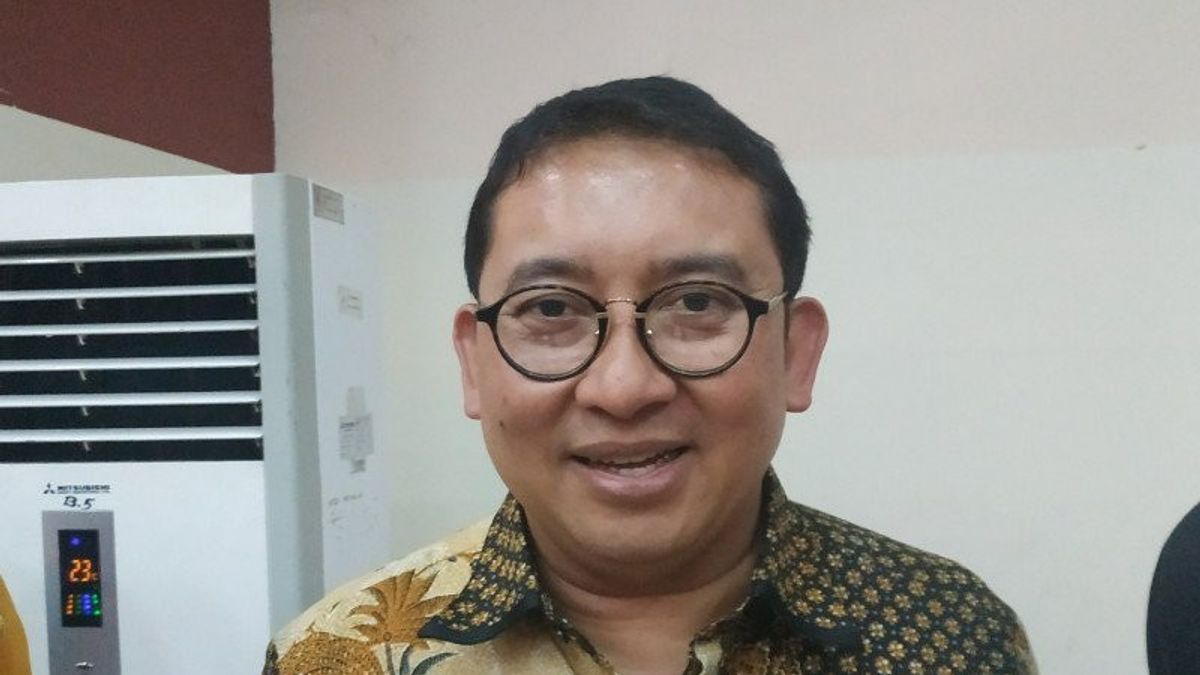JAKARTA - Deputy Chairperson of the Gerindra Party, Fadli Zon, highlighted the way the Minister of Religion, Yaqut Cholil Qoumas, explained the reasons for the sound volume of mosques and prayer rooms needing to be set to a maximum of 100 dB or decibels.
The regulation is contained in the Circular of the Minister of Religion Number 05 of 2022 concerning Guidelines for the Use of Loudspeakers in Mosques and Musala.
Fadli even said istigfar for the statement of Minister of Religion Yaqut. The reason is, in that explanation Yaqut also gave an example of dog barking as other sounds that can disturb the community.
In fact, according to the former deputy chairman of the DPR, it was Yaqut's statement that would actually create a commotion. Therefore, Fadli asked the Minister of Religion to focus on the work that is the main task of his ministry. Moreover, the issue of Hajj and Umrah is a very important issue. “This official is looking for trouble that causes a commotion. Meanwhile, the big ones, such as hajj and umrah, are incompetent," said Fadli via his personal Twitter account, Thursday, February 24. Moreover, said Fadli, Minister of Religion Yaqut's presentation could lead to the assumption that the sound of the mosque's toa is the same as the barking of a dog. Astagfirullah," said Fadli. Previously, the Minister of Religion (Menag) Yaqut Cholil Qoumas issued a circular regulating the use of Toa in mosques and prayer rooms. Yaqut then compared the rules to the barking of dogs.
"Regarding the rules for the call to prayer, we have issued a circular regulation. We do not prohibit mosques from using Toa, no. Go ahead. Because it is the symbol of Islam," said Yaqut at the Riau Province Regional Building, Wednesday, February 23. Even so, he asked Toa's volume to be set to a maximum of 100 dB (decibels). In addition, the usage time is adjusted every time before the call to prayer. "But this must be regulated how the speaker volume should not be loud, 100 dB maximum. It is set when they can start using the speaker before and after the call to prayer. There is no prohibition," Yaqut emphasized. Yaqut believes that the rules are made only to create a sense of harmony in the community. Including increasing the benefits and reducing those that are not useful. "This rule was made solely to make our society more harmonious. Increase the benefits and reduce the disadvantages," he said. Only, if they are turned on at the same time, there will be disturbances. "Because we know, for example, in Muslim-majority areas. Almost every 100-200 meters there are mosques. Imagine if at the same time they lit the Toa together at the top. It's no longer syiar, but a nuisance for the surroundings," he said. "We can imagine again, I'm a Muslim, I live in a non-Muslim environment. Then the house of worship for our non-Muslim brothers and sisters turn on the Toa five times a day loudly, that's how it feels," said Yaqut again. He then gave an example of other noises that can cause disturbance. One of them is the sound of a dog barking. whatever the sound is, we have to adjust it so that it doesn't interfere. Speakers in the mosques are welcome to use, but please set them so that they are not disturbed," he said. Yaqut then asked that Toa's voice be timed. So the intention to broadcast does not cause public disturbance. "In order for the intention to use speakers as a means, doing syiar can still be carried out and does not interfere," said Yaqut.
The English, Chinese, Japanese, Arabic, and French versions are automatically generated by the AI. So there may still be inaccuracies in translating, please always see Indonesian as our main language. (system supported by DigitalSiber.id)











